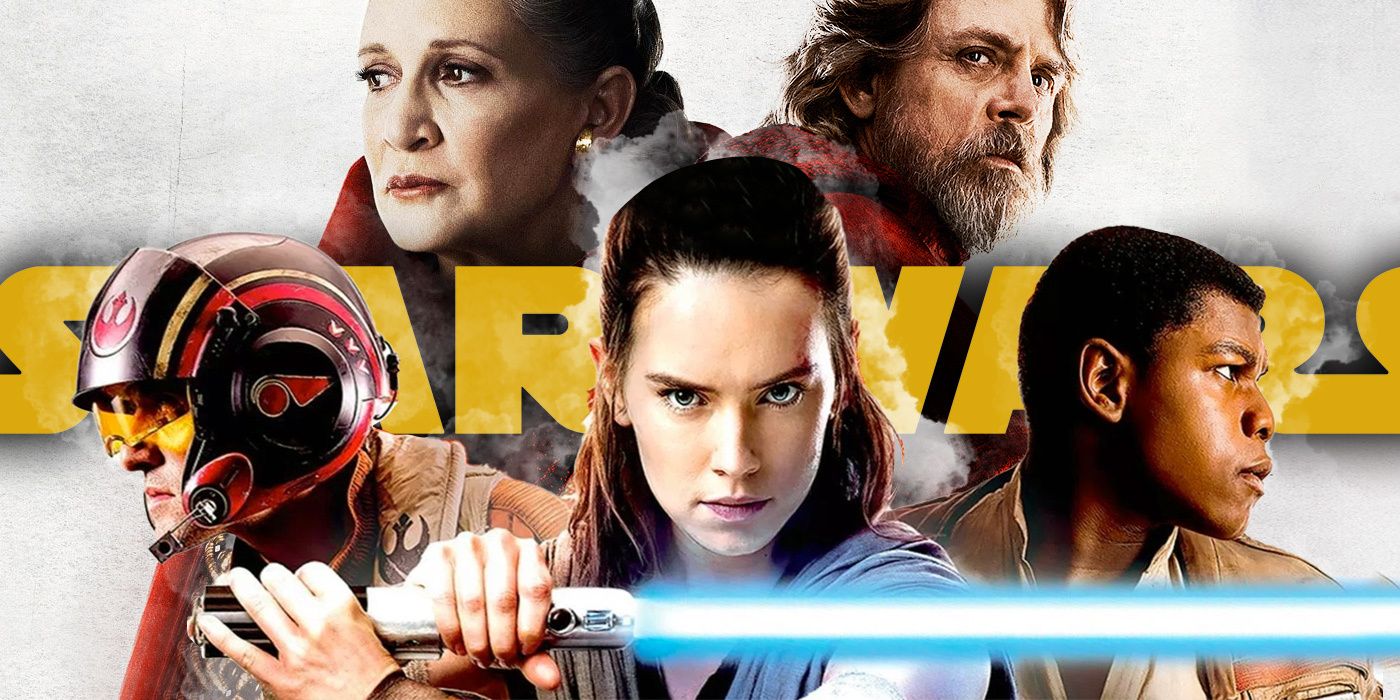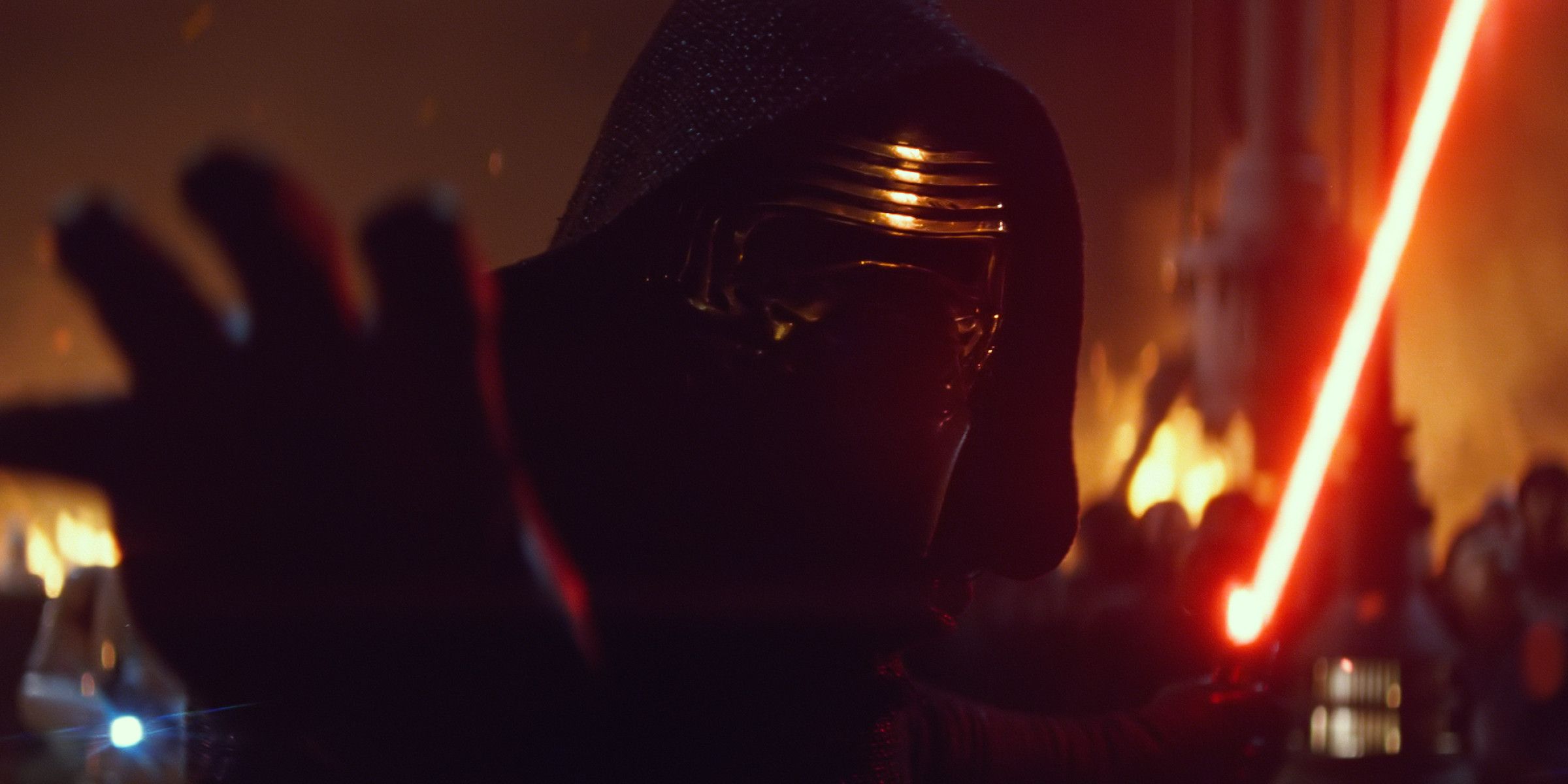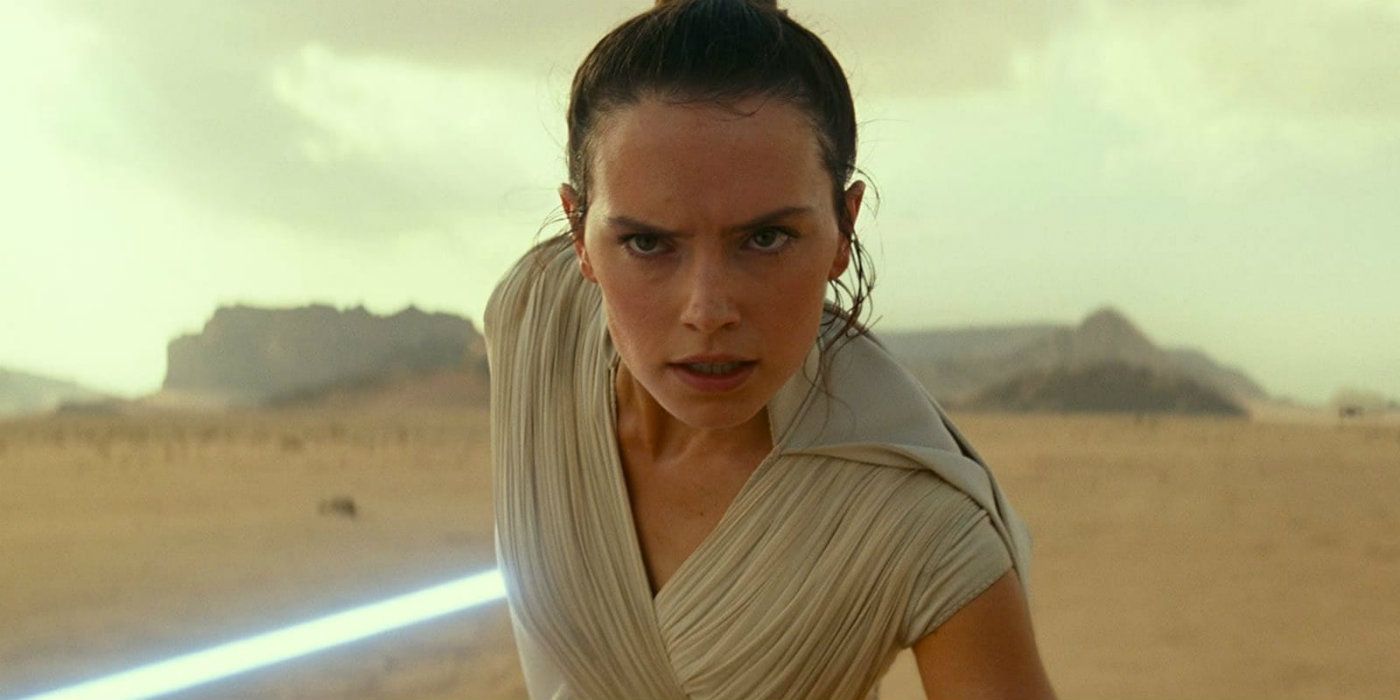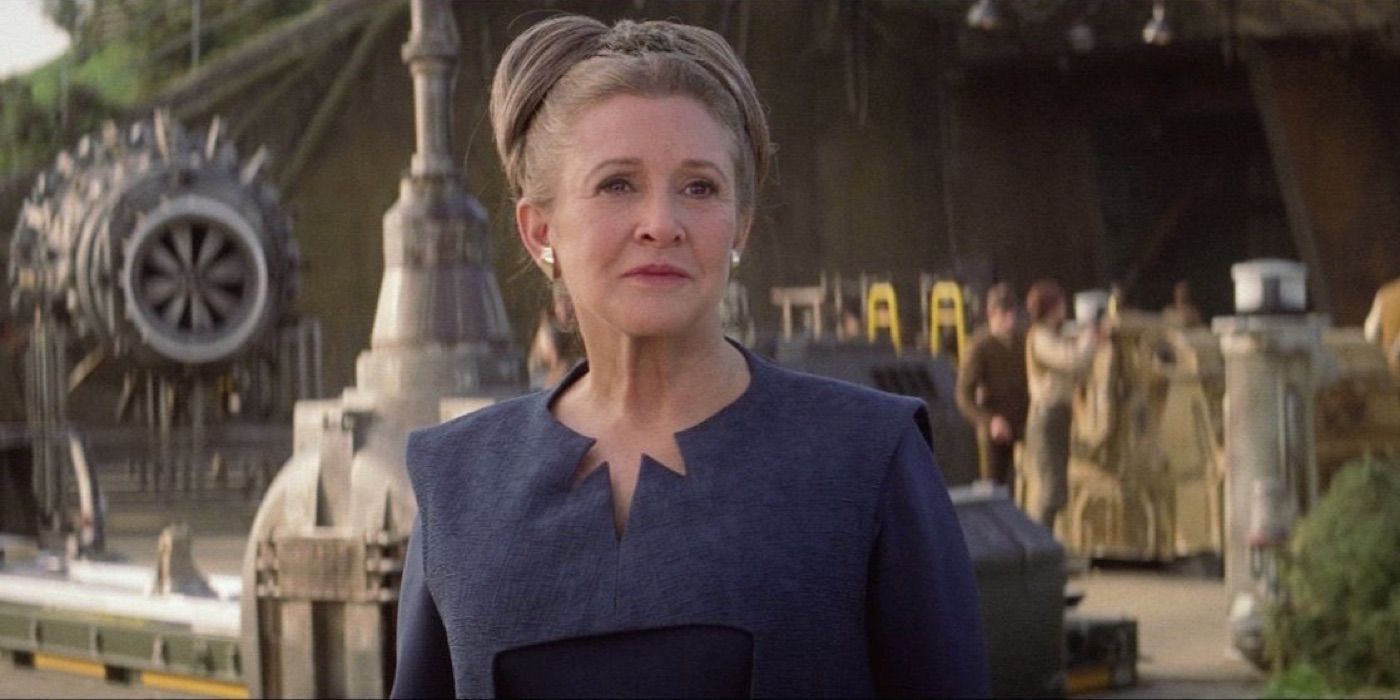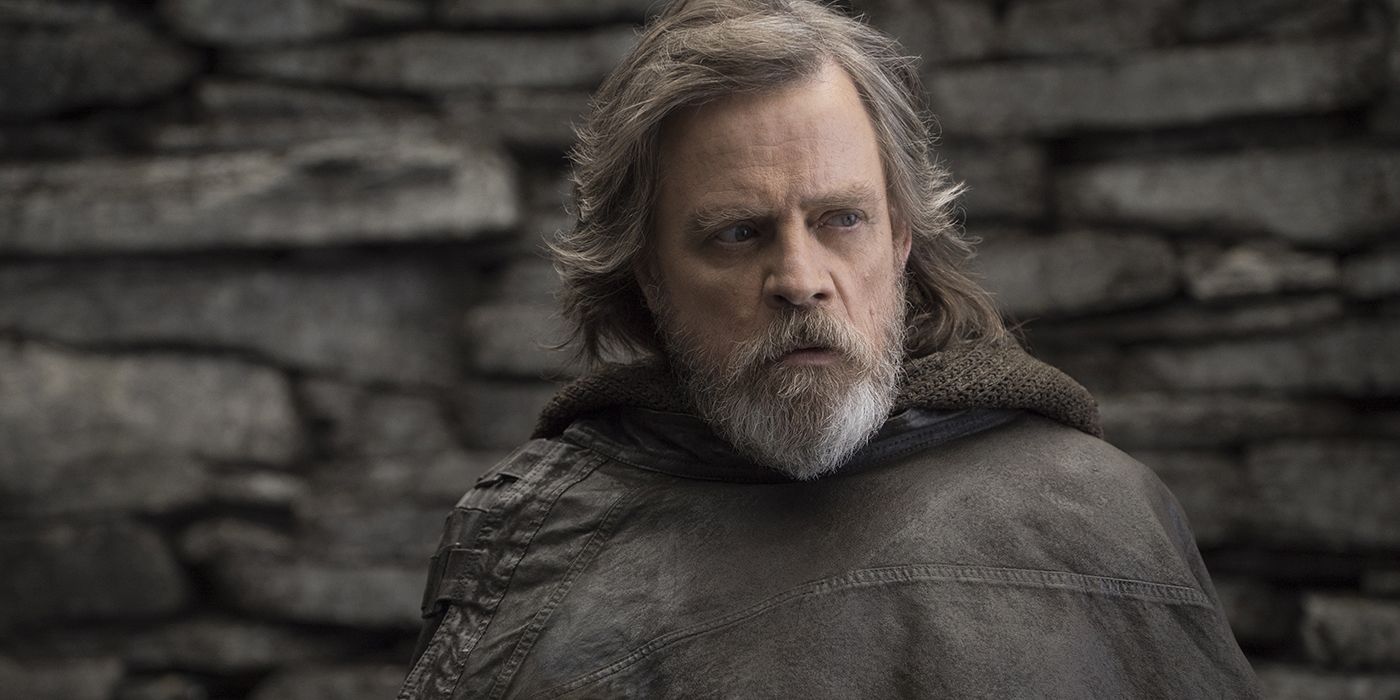With The Last Jedi, Rian Johnson managed to combine a healthy dose of respect for what came before with a firmer focus on the new characters, their wants and needs, and how the saga was going to continue to grow for a new generation of viewers. Rey (Daisy Ridley) clearly mirrors Luke (Mark Hamill) in many ways: She's from a desert planet, she gets swept away by a plan to help save the universe via droid delivery, and she's the Jedi of the new generation, destined to lead the charge in saving the galaxy and bringing balance to the Force.
But Rey isn't Luke. For one, she was completely abandoned on her desert planet (Jakku) and left to live alone. She holds out hope that her parents left her for a good reason and will come back for her one day. Ridley imbues Rey with different qualities that set her apart from Luke and make her her own kind of hero.
The Force Awakens gently eased old and new audiences back into Star Wars with a nostalgia-laden opening chapter that mostly just asked questions: What happened between Kylo (Adam Driver) and Luke? Why was Rey abandoned? Why did Luke leave everyone he cared about behind? And then of course, for some, there was the question of how Rey could be so powerful, a question that becomes much more pressing for some viewers when the power-wielder in question is female.
The Last Jedi isn't interested in a rehashing of the original trilogy, and it's so much better for it. It respects the figures of the past, but it firmly recognizes that this is a story about the new generation. With that, the story can now officially be about Rey, Finn (John Boyega), and Poe (Oscar Isaac), and Johnson places each character in a dichotomy of wants and needs that forces them to make choices about who they want to be. Our protagonist, Rey, is torn between the two opposing philosophies that give the film its thesis and its heart.
So, what is the hardest thing Rey can hear? Like anyone with an absentee parent, Rey wants a reason why. She wants to give meaning to all the years of pain and confusion. She wants her hope to have been for something. If she could find out that her parents were heroes who had no choice but to give her up, or that they're still alive somewhere and that reconciliation is possible, she'd have nothing to struggle with and everything she’d always wanted.
In a brilliant move that sets Rey's story apart from Luke's, opens up Star Wars for the new generation, and, most importantly, challenges Rey like no other answer could, The Last Jedi has Rey come to the realization that her parents are no one special, they are really, truly, never coming back, and there is no meaningful explanation of her years of loneliness. Sometimes people just leave.
The Last Jedi does Rey a great service by giving her the most personally challenging answer possible to the question of who she is. Because of this, she has the opportunity for growth and we can actually believe for a second that she might consider finding the belonging she's sought in Kylo's offer to join him. The fact that she doesn't, that she chooses to continue in the face of this devastation, is what starts her on the next part of her journey.
The realization that Rey isn't powerful because of her connection to some bloodline does something more than making her stand on her own in this story. The Last Jedi completely disrupts the mold that Star Wars had inevitably found itself in. The Empire Strikes Back's brilliant twist gave Luke the most personally difficult revelation he could hear, and in doing so turned Star Wars into a family story. The sequel trilogy doesn't remove the Skywalkers, but it does revitalize the saga by giving it new blood.
The years between The Last Jedi and The Rise of Skywalker were, in many ways, a great time to be a Star Wars fan. The Force Awakens had tee-ed up interesting questions, which The Last Jedi knocked out of the park with the best possible answers and set things up for what should have been a fantastic finale. What we got instead was extremely disheartening. The Rise of Skywalker displays an obsession with the past that not even The Force Awakens had. Almost immediately, the question of Rey's identity is reopened. I expected to see the same young woman I'd been following for the past two movies; a little older, a little wiser, a little more confident, but still with things to learn. Instead, Rey has Leia (Carrie Fisher) keep custody of the lightsaber that called to her in The Force Awakens until she's "earned it".
Abrams retcons the brilliant reveal that The Last Jedi was building to. Rey's parents weren't nobodies: her father was a clone of Palpatine (Ian McDiarmid), which the movie claims makes her the Emperor's granddaughter (I'm no scientist, but I'm pretty sure that's not how genetics work). Rey finds out that she's related to a creepy old guy that she's vaguely heard of before, and the work The Last Jedi did is undone with one ridiculously blue, awkwardly written scene. The Rise of Skywalker wants you to think that this is a twist on par with the reveal in The Empire Strikes Back. But in that movie, Luke knew Vader. That revelation had weight for the character. But these character motivations that should be the driving force of every good story are almost completely absent in The Rise of Skywalker.
Another thing The Rise of Skywalker wants to explore is Rey's inclination toward the dark side. But the movie also thinks that any darkness Rey has is due to some unfortunate genetic circumstances and that all she has to do to overcome that is to… be more like Luke and Leia. The thing is, Rey already has darkness – real, compelling darkness – not of the lineage-related variety ("You don't just have power, you have his power." is an actual line said to Rey in the movie). She was abandoned by parents who didn't care about her. She watched the father figure she'd always dreamed of get murdered right in front of her. She developed a relationship with Ben Solo, only to find that he had no intention of changing (yet). She's burdened with being the last remaining Jedi and bears the weight of saving the galaxy on her shoulders. These are real things that are interesting to play. "The grandfather I never knew was really evil so I guess I am too" is… less so.
The Rise of Skywalker could have continued to build on the ideas Yoda presents to Luke in The Last Jedi. Rey could have held her own amongst a bunch of legacy characters and been the “nobody” who saved the galaxy. Instead, she becomes a vessel for the most boring and uninspired kind of nostalgia. Rey takes on Palpatine, and The Rise of Skywalker seems to think that we'll buy the stakes presented. But the shoehorned story about Rey battling an evil legacy is a cheap cover of what the filmmakers really want to do: make this story all about Luke Skywalker.
Rey defeats Palpatine by melting him with Luke and Leia's lightsabers, killing herself in the process. It's Ben Solo who cares enough to give his life to Rey. She comes back to life, and suddenly the power of the dyad, "a power like life itself", isn't enough to save Ben Solo (the actual remaining member of the family the movie is so obsessed with). So, what should have been an ending to Rey's story becomes yet another ending to the Skywalker family’s story. Rey doesn't learn how to be enough on her own, independent of any lineage. She doesn't get to be with Ben, and her friendships and the themes of found family that Star Wars does so well are set aside in favor of fetch-quests and nostalgia worship.
The Rise of Skywalker ends with Rey flying to Tatooine, where Anakin (Hayden Christensen) and his mother lived as slaves, where he watched his mother die after brutal abduction and abuse, where Luke felt stuck and was only freed by the savage murder of his aunt and uncle, and where Leia spent a brief time as a sex slave. It's here that Rey buries Luke and Leia's lightsabers, giving a hollow, thoroughly dissatisfying ending to her story and that of the Skywalker family.
The scene is shot as if the audience is expected to be floored by how perfectly it wraps up the entire story. If you were happy with it, then great; write this article off as bitter nonsense and go give it another watch. But from a storytelling perspective, it just doesn't work. It's a hollow reference to a scene from the very beginning of Luke's story, not Rey's, and symbolically buries Star Wars in the Tatooine sand.

